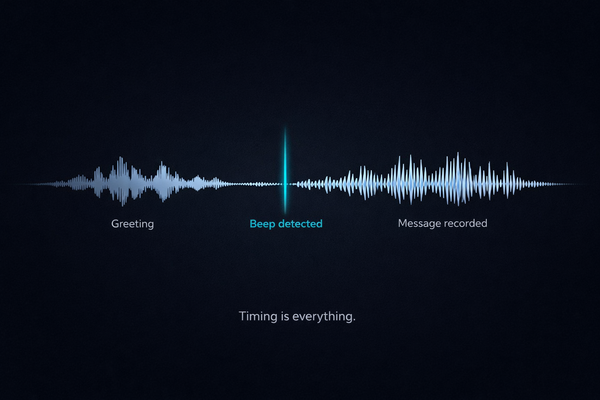[Hospitality] How AI is Transforming Hospitality While Preserving the Human Touch
![[Hospitality] How AI is Transforming Hospitality While Preserving the Human Touch](/content/images/size/w1200/2025/04/AI-Mickey-Mouse_--1-.png)
In this exclusive interview, Accelerating Leaders founder Alec Dalton shares insights on implementing AI in the hospitality industry without sacrificing service excellence.
In this exclusive interview, Alec Dalton of Accelerating Leaders shares insights on implementing AI in hospitality while preserving the human touch. Drawing from his extensive experience at Disney, Ritz-Carlton, and Marriott International, Dalton discusses the unique challenges of AI adoption in an industry defined by human warmth, the importance of conversational UX design in AI interactions, and the opportunities for AI to enhance rather than replace hospitality professionals. He provides practical frameworks for implementation and offers his vision for how AI will transform meetings, events, and personalized guest experiences in the coming years.
Key Takeaways
• Humane Intelligence – Dalton suggests reframing "artificial intelligence" as "humane intelligence" to emphasize that effective AI must incorporate emotional intelligence and context awareness, not just computational power.
• Brand-Aligned AI Voice – AI implementations must reflect the unique brand voice of each hospitality provider, with formal language for luxury brands and more casual tones for lifestyle hotels targeting younger demographics.
• Conversational UX Design – The timing and pacing of AI responses significantly impact guest perception, with instantaneous replies feeling unnatural while appropriate pauses create more comfortable interactions.
• Knowledge Augmentation – AI's greatest potential in hospitality may be in augmenting staff knowledge, allowing them to provide better recommendations and information without having to memorize vast amounts of details.
• The RADAR Framework – Hospitality leaders should evaluate AI implementations using the industry-standard RADAR framework: Reliability, Assurance, Tangibles, Empathy, and Responsiveness.
• Navigating Physical AI – When implementing physical AI in hospitality settings, brands must choose which side of the "uncanny valley" to occupy – either embracing the robot nature or striving for highly realistic interactions.
The hospitality industry has always been defined by its commitment to personal service and human connection. As artificial intelligence continues to evolve, hospitality brands face the challenge of leveraging these powerful new technologies while maintaining the warmth and personalization that guests expect.
Few understand this delicate balance better than Alec Dalton, founder of Accelerating Leaders. With an impressive background including leadership roles at Disney, Ritz-Carlton, and Marriott International, Dalton has spent his career helping hospitality brands deliver exceptional guest experiences. I had the opportunity to sit down with Alec to discuss how AI is reshaping the hospitality landscape, the challenges of implementation, and his vision for the future of service in a technology-enhanced world.
From Disney Magic to Hospitality Innovation
Dalton's journey in hospitality began "with boots on the ground" working in hotels across New England and Orlando, including positions with Walt Disney World and Ritz-Carlton, before moving into corporate roles.
"I supported about 7,500 hotels worldwide across their technology stack as it related to things like guest satisfaction surveys, mystery shop audit programs, and advancements in analytical technologies to help hotels figure out how to create better and better guest experiences," Dalton explains.
After his corporate tenure, he pivoted to consulting, founding Accelerating Leaders to help organizations develop exceptional guest experiences while simultaneously elevating employee experiences. This dual focus has made him particularly attuned to how new technologies can enhance rather than replace the human element in hospitality.
Humanizing Artificial Intelligence
When asked about AI's role in transforming hospitality while maintaining the human touch, Dalton offers a thoughtful perspective that reframes how we should think about these technologies.
This perspective is particularly important in hospitality, where the industry itself is named for the human quality of being hospitable. Dalton notes that the industry faces a unique challenge with AI adoption precisely because hospitality is "so innately human."
"One of the beautiful things about hospitality as a word is that it applies both to the warmth and welcoming that we receive, as well as to the name of the industry," he explains. "Guests are predisposed to think about receiving that human touch."
Common Implementation Pitfalls
Implementing AI in hospitality comes with specific challenges that brands must navigate carefully. Dalton highlights "completeness" as one of the most common issues.
This thoroughness not only sets proper guest expectations but helps the hospitality provider deliver on their promises. Without attention to such details, AI implementations can fall short of the service standards that define excellence in hospitality.
Another critical consideration is maintaining brand voice consistency. Dalton illustrates this with a comparison between luxury and lifestyle hotel brands:
"If we were talking with Ritz Carlton guests via voice assistant, it would be appropriate to use more formal language, to have a little bit more precision and diplomacy and tact. If we were talking with guests on the flip side of, say, a Moxie Hotel, Millennial and Gen Z forward brand, we can get a little bit more fun and funky with the dialogue."
The Conversational UX Challenge
One fascinating aspect of our discussion centered on the importance of conversational UX in AI implementations. Dalton notes that the timing and pacing of AI responses can significantly impact how "human" the interaction feels.
"There's a tricky thing because I think guests are smart enough to know when they're talking to an agent or not. Being too human-like might seem suspicious. At the same time, feeling almost kind of programmatic or coded might not make the guest feel that human touch."
This insight points to the subtle art of designing AI interactions that feel natural without attempting to deceive users about whether they're speaking with a human or machine. The goal isn't necessarily to pass a Turing test but to create a comfortable, effective interaction that meets guest needs while aligning with brand expectations.
This accelerated adoption contributed to HomeBase's impressive growth—400% year over year in 2020 and continuing strong through 2021. The company now serves over 15,000 properties across North America.
AI as Enhancement, Not Replacement
A common concern about AI adoption is that it might diminish or replace human service interactions. Dalton sees AI instead as an enhancer of human capabilities in two key ways.
First, AI can augment staff knowledge and efficiency:
This knowledge management application is particularly valuable in hospitality, where staff are expected to be experts not only on their property but often on the surrounding area and available services.
Second, direct guest interactions with AI can free up human staff for more complex service needs: "There are opportunities for guests to connect directly with AI, whether it be through voice assistants, chatbots and the like. But the key is to do everything in our power to make that a human or human-like experience."
Overcoming Resistance to Adoption
When training hospitality leaders and staff to work with AI, Dalton encounters several common objections: "AI is either replacing or taking my job. AI is difficult to use. AI is inaccurate. AI doesn't provide the level of service that I can provide."
He emphasizes the importance of acknowledging these concerns as legitimate rather than dismissing them. "The first thing that I always recommend is facing the facts that those are legitimate both challenges and opportunities."
Part of the resistance also stems from past experiences with less sophisticated technologies:
These early experiences created negative associations that today's more advanced AI must overcome to gain acceptance from both hospitality staff and guests.
The Future of AI in Hospitality
Looking ahead to the next three to five years, Dalton sees significant opportunities for AI to transform the meetings and events space, where complex logistics currently require substantial human coordination.
"I can anticipate a lot of those logistical aspects, especially on these large scales, can be handled by AI agents."
Mass personalization represents another frontier for AI in hospitality: "Even when it comes to making tailored recommendations toward a guest, right now you have to have a dialogue with typically a real human being at the front desk or over the phone. Increasingly, AI can offer more tailored responses at a personal level, while still reflecting the voice that the brand wants represented."
The physical manifestation of AI in hospitality settings is also evolving, with examples ranging from robot concierges to interactive characters. Dalton points to Henna Hotels in Japan, which features a dinosaur at check-in, and past experiments like Hilton's robotic concierge "Connie."
The key consideration for these physical implementations, according to Dalton, is navigating the "uncanny valley" effect: "You either have to be perfectly human, which I've never seen done, or you've just got to lean into the fact that this is a robot. So what kind of robot do we want it to be?"
Conclusion
As AI continues to transform the hospitality landscape, the industry faces both challenges and opportunities in integrating these technologies while preserving its essential human character. Through thoughtful implementation guided by experienced leaders like Alec Dalton, hospitality brands can enhance their service capabilities while maintaining the warmth and personalization that define great hospitality experiences.
With his unique perspective bridging Disney magic, luxury hospitality excellence, and current technology trends, Dalton offers a vision of AI not as a replacement for human connection but as an enhancement that allows hospitality professionals to deliver even more personalized, responsive service.
For those interested in learning more, Dalton welcomes connections on LinkedIn and invites readers to visit Accelerating Leaders for information about his consulting services.
How to connect with Alec from Accelerating Leaders
Keywords: Hospitality technology, AI in hospitality, Service excellence, Human touch, Conversational UX, AI




![[AI Digest] Agents Coordinate Plan Deploy Scale](/content/images/size/w600/2025/07/Daily-AI-Digest.png)